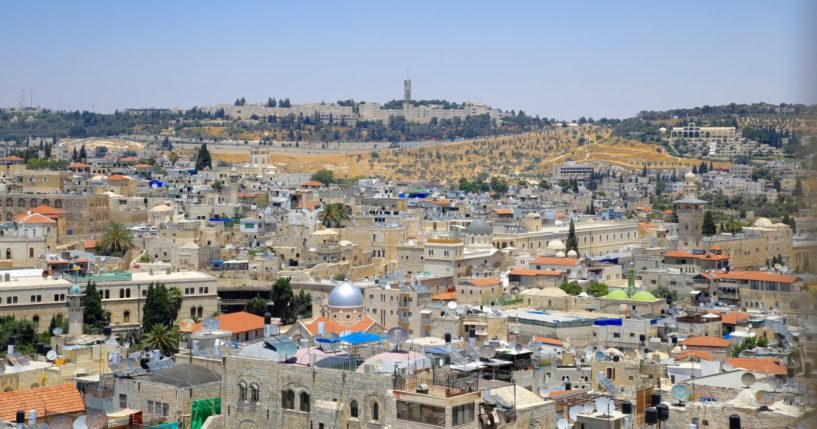
Will Eastern Jerusalem Become Israel's Newest High-tech Hub?

JERUSALEM — A few years ago, nobody believed Jerusalem could become home to one of Israel’s leading high-tech ecosystems.
Yet, a new project to create a tech hub in the eastern part of the city is set to strengthen the mission to transform Israel’s most populous city.
“I’m very proud to have been part of a movement in Jerusalem to make it the capital of the startup nation,” said Jerusalem’s Deputy Mayor Fleur Hassan-Nahoum in a recent episode of the podcast “Wine with Adam,”
“I was part of a founding team of people who set up a nonprofit whose only purpose was to advance Jerusalem as an innovation ecosystem, to encourage high-tech, to keep the young people here, and to keep Jerusalem ahead,” she said.
New opportunities for the Arab population
Hassan-Nahoum also emphasizes that she is working to bring the same opportunities to the Arab community living in the city.
“One of our projects is to create a high-tech park in East Jerusalem called Silicon Wadi,” she tells Bellos.
“I’m bringing investment from outside the country to push it forward. I’m a big believer in peace and coexistence through economic development.”

According to Hassan-Nahoum, the Abraham Accords represented a major turning point for this mission.
“They’ve really changed everything,” she said “But the most significant thing is that it has changed our relationship with the Arab world and the Muslims. There’s no longer an Arab-Israeli conflict.”
Hassan-Nahoum also said that Jerusalem represents not only Israel’s largest city, but also “a microcosm of the future state of Israel.”
“The demography of the State of Israel today in terms of its minorities is about 12-13% Orthodox Jews and about 20% Arabs. In Jerusalem, these numbers are twice as high.
Therefore, we have 25% of ultra-Orthodox, and about 38%-40% Arabs,” she says. “This means that the challenges that we face in Jerusalem today are the challenges that the State of Israel is going to face in 20 or 30 years.”

According to the city’s deputy mayor, Jerusalem therefore can represent the “laboratory of solutions” to develop models that could be used to solve the country’s problems in the decades to come.
“This is why it is important to invest in Jerusalem,” she said.
Produced in association with Jewish News Syndicate.
(Additional reporting provided by JNS Reporter)
Edited by Rebecca Bird and Joseph Hammond
The Western Journal has not reviewed this story prior to publication. Therefore, it may not meet our normal editorial standards. It is provided to our readers as a service from The Western Journal.
Truth and Accuracy
We are committed to truth and accuracy in all of our journalism. Read our editorial standards.
Advertise with The Western Journal and reach millions of highly engaged readers, while supporting our work. Advertise Today.










